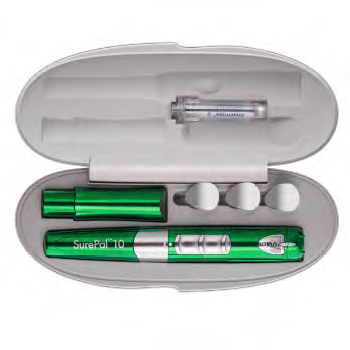Julia and Dane interview Dr Jennifer Miller at IPWSO 2019 Conference
Whilst attending the IPWSO conference in Cuba, Julia and Dane Fuller, from New Zealand, were very fortunate to be able to interview expert endocrinologist, Dr Jennifer Miller. The interview contains useful information for families as Dr Miller discusses growth hormone therapy, thyroid function, insulin resistance and a healthy diet for PWS – please see summary notes below. Thank you Dane and Julia for sharing this with us all.
Summary
- Growth hormone therapy improves cognitive skills in both children and adults. The oldest person Dr Miller has started on GHT was 45 years old. GHT can improve memory, verbal skills and some data shows it may possibly prevent early dementia.
- Thyroid testing should be done at least annually and twice a year in under 3’s. We believe that those children on GHT in New Zealand will be having thyroid tests as part of their 6 monthly blood tests, but those who are not on GHT or under an endocrinologist should ask their GP for this test, if it is not already being routinely done. Hypothyroidism is fairly common in PWS, but clinical symptoms such as fatigue, constipation, cold intolerance and easy weight gain may go unnoticed as they are also typical of PWS. Other symptoms to look for are dry skin and hair loss.
- Testing IGF-1 levels alone is not a reliable indicator of whether a GH dose is appropriate. During nutritional phases 2a and 2b, IGF-1 levels are likely to appear higher due to a rise in insulin that occurs, but this is not necessarily representative of real IGF-1 levels and how the GH dose is affecting the body. Rather than risk losing the positive effects of treatment by lowering the dose, Dr Miller prefers to use a more accurate test which involves also measuring the GH binding protein levels (IGFBP-3) and using a ratio with the IGF-1 levels to calculate the amount of free IGF-1 acting on the body.
(This testing is not routinely done or currently available within New Zealand laboratories, but we have been informed that it is possible for endocrinologists to request this test, although it is only requested if deemed necessary or paid for privately because samples are processed in Australia.) Dr Miller recommends that if only IGF-1 testing is done and the levels are high, a clinical evaluation should take place looking for signs of overgrowth, such as excessively long fingers and excessive chin or head growth, before reducing the GH dose. - Individuals with PWS have an increased risk for insulin resistance compared to the general population. It is thought this may possibly be due to abnormal insulin receptors in the hypothalamus. This means that when a person with PWS eats simple carbs, sweet or artificially sweetened foods, their insulin levels will be higher which may cause weight gain and block satiety signalling.
- Good, complex carbohydrates are needed for growth and muscle building. If there is insufficient carbohydrate in the diet, the body will use protein and fat to grow and the body will not make muscle. This, in turn, makes it more difficult to exercise and be physically active.
- Dr Miller recommends a well balanced diet of approximately 30% protein, 40% carbohydrate and 30% fat. Carbohydrates should be complex carbs. A plate can contain as many green vegetables as you wish but starchy vegetables should be avoided. A starch portion size would be what would fit flat on the palm of their hand. A portion of beans, legumes, quinoa or couscous would be the size of their fist. A little olive oil is a good source of fat. An example of a recommended breakfast is an egg with vegetables or fruit and a small portion of nutty, grainy, seedy toast. Juice should be avoided because it lacks the fibre which is essential for delaying the insulin rise. Dried fruit should also be avoided because it concentrates the sugar. Good sources of natural fat are olive oil, avocado, cheese or a little butter. An example of what an occasional snack could be is some coconut oil and peanut butter balls rolled in oats.
- Dr Miller recommends educating your child about healthy eating and what is good and bad for their body, rather than completely withholding treats. If the whole family follows a healthy eating plan, it can be explained to the child that this is how our family eat. Dark chocolate is a good substitute when other children are having treats in school, i.e. dark chocolate covered strawberries, or fresh fruit and whipped cream with cinnamon or vanilla flavouring. Dr Miller recommends showing your child the ingredients lists on products and explaining why simple foods with less ingredients or home prepared foods are healthier. It should also be explained to children that when something less healthy is eaten, a decision has been made to eat it because it is a special occasion and on this one time or one occasion it has been decided that the family can have this. This allows for a feeling of normalcy. As children get older they can be taught to evaluate how food makes them feel rather than how it tastes.



